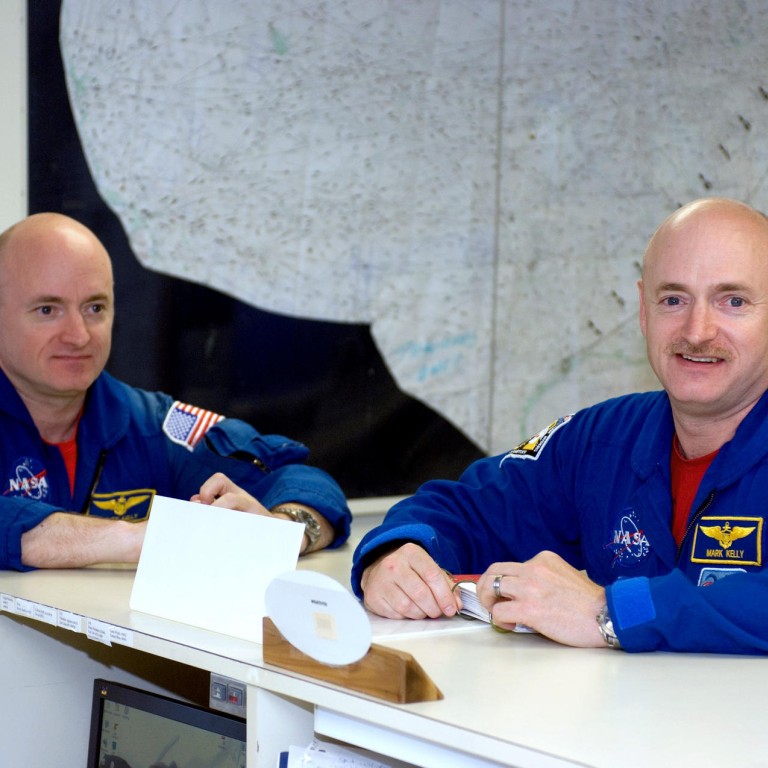
Identical twin astronauts Scott and Mark Kelly subjects of scientific study
When one is on the space station, the other will be undergoing medical tests while on the ground
Astronauts Scott and Mark Kelly will take part in an unprecedented study of identical twins to better understand the effects of prolonged weightlessness by comparing the twin in space with the twin on the ground.
When Scott Kelly embarks on a one-year space station stint next spring, his twin brother and retired astronaut Mark Kelly will be joining in from earth, undergoing medical testing before, during and after his brother's American-record-setting flight.
Mark Kelly draws the line, though, at mimicking his brother's extreme exercise in orbit or eating "crappy space station food". The twins are aged 50.
Scott Kelly has volunteered to spend an entire year aboard the International Space Station beginning next March, along with Russian cosmonaut Mikhail Kornienko, 54, a former paratrooper.
No American has come close to a year; seven months is the maximum for a single human mission that Nasa, the US space agency, allows. The Russians, on the other hand, are old hands at long-duration spaceflight, claiming title to a record-setting 141/2- month mission back in 1994-95.
"No second thoughts. I'm actually getting kind of excited about the whole idea as we get closer," Scott said in a recent interview.
Scott knows what he is getting into: He spent five months on the orbiting lab in 2010-2011.
The Kellys represent a scientific gift, said Craig Kundrot, the deputy chief scientist for the human research program at Nasa's Johnson Space Centre in Houston, Texas.
"Not only are they the same genetically, but one is an astronaut, one's a retired astronaut. So they've followed very similar career paths. After Scott's mission is done, he'll have 540 days of spaceflight [in four missions]. Mark will have 54. So exactly a 10-fold difference," Kundrot said.
"That's just an uncanny opportunity that we're taking advantage of."
Nasa has selected 10 proposals for the twin study, involving the immune system, gut bacteria, reaction time, fluid shift in space and its potential connection to visual impairment, DNA and RNA molecular science, and hardening of the arteries, among others.
A Stanford University sleep specialist and immunologist, Dr Emmanuel Mignot, wants to give each brother a standard flu shot before, during and after the one-year mission. Blood draws will highlight any differences detected between the space twin and the ground twin, and help researchers better understand changes to the body's immunity in weightlessness.
"No one really knows what happens to the immune system in space for a long period of time and, sooner or later, people are going to need to confront this issue," Mignot said
That is the whole point of Kelly and Kornienko's one-year mission: to identify physical challenges that need to be overcome before astronauts venture to Mars and beyond.
The pair will launch from Kazahkstan aboard a Russian rocket and return via a Russian capsule. Midway through their mission, they'll have a real change of pace.
English soprano Sarah Brightman - perhaps best known for her starring role on stage in - intends to fly up as a paying passenger in a private deal with the Russians.
"It would be hard to beat her" for breaking the monotony of space, said Scott, a longtime fan.
Mark is married to former congresswoman Gabrielle Giffords, who survived a 2011 assassination attempt while Scott was on the space station.
